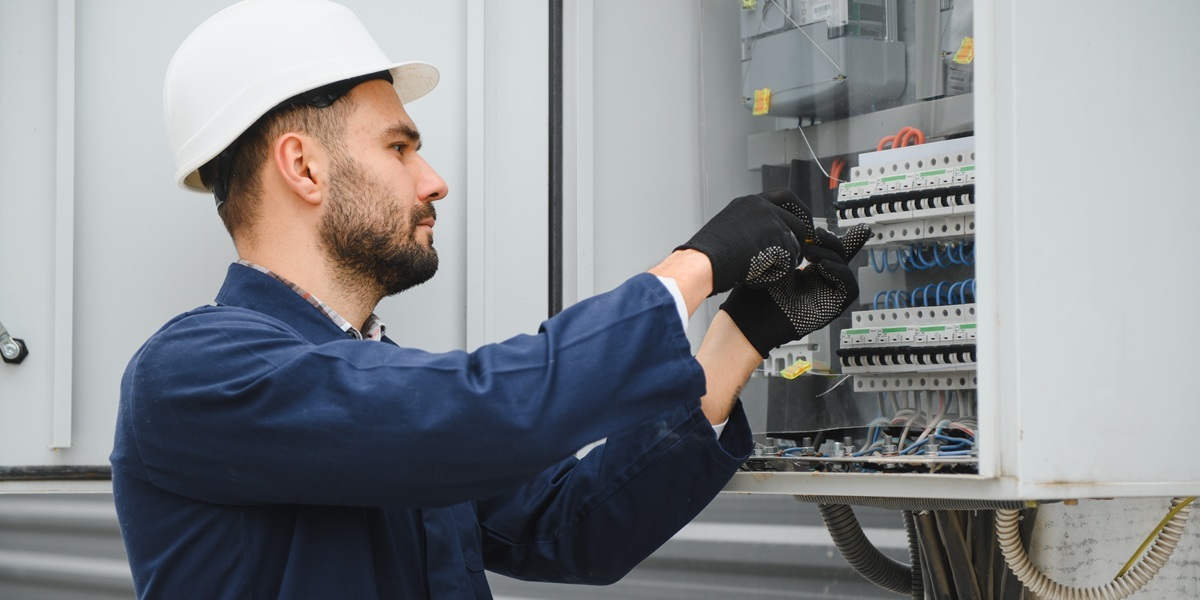Investor Resources
How Proactive Maintenance Elevates Your Commercial Property Investment

Proactive maintenance is a key property management investment strategy that directly supports the long-term performance of commercial real estate assets. Regular upkeep directly supports the long-term performance of commercial real estate assets, stabilizing returns and protecting capital.
In markets like Baltimore and Washington, D.C., where property values are shaped by tenant demand and operational reliability, maintenance plays a critical role in sustaining growth. This blog explores how proactive management strengthens portfolio value, the risks of reactive maintenance, and how Kenwood’s investment-minded approach helps owners maximize returns.
Why Proactive Maintenance Is a Smart Investment Strategy
Proactive maintenance is one of the most effective ways to preserve and grow the value of a commercial property. When investors think strategically about management, maintenance becomes less of an expense and more of a value driver.
It Prevents Small Issues from Becoming Capital Expenditures
Routine inspections and upkeep allow owners to address potential problems before they escalate into major repairs. For example, a small roof leak fixed early may cost a few hundred dollars. Left unchecked, it can cause structural damage worth tens of thousands.
This approach protects the property’s operational efficiency and minimizes costly disruptions to tenants. Over time, the cumulative effect of small, smart decisions can add up to significant savings across an entire portfolio.
It Preserves Property Value and Enhances Tenant Retention
A well-maintained property attracts and retains high-quality tenants. Businesses rely on stable, functional spaces that support their operations and brand image. When maintenance is proactive, tenants experience fewer interruptions, leading to longer leases and fewer turnovers.
In turn, reduced vacancy means consistent rental income, which is a key factor in achieving reliable investment performance.
It Builds Predictable, Stable Cash Flow
Preventive maintenance allows for more accurate budgeting and fewer financial surprises. Predictability appeals to investors focused on long-term performance, as steady cash flow makes it easier to plan capital improvements and assess portfolio growth.
In the D.C. and Baltimore markets, where operating costs can fluctuate with weather and building age, this level of foresight gives owners a competitive edge.
The Cost of Reactive Management: Risks That Erode Commercial Real Estate Value
Many investors underestimate how quickly reactive management can undermine returns. When maintenance decisions are made only after problems arise, both operational efficiency and asset value suffer.
Higher Repair Costs and Downtime
Deferred maintenance often leads to emergency repairs that cost far more than preventive work. An HVAC system neglected for years may fail during peak summer, leading to costly service calls and tenant dissatisfaction. Unexpected downtime also interrupts business operations, potentially resulting in rent concessions or lost revenue.
Shorter Lease Terms and Higher Vacancy Risk
Tenants value reliability. If a property repeatedly experiences maintenance issues, it can signal poor management and increase vacancy risk. Vacancies take time and resources to fill, which delays cash flow and adds turnover costs.
Even short periods of downtime between tenants can create ripple effects across an investor’s financial plan.
Reduced Valuation During Sale or Refinancing
A commercial property’s maintenance record plays a major role during valuation. Lenders and buyers carefully evaluate deferred maintenance when determining risk and pricing. Poor upkeep can lead to reduced appraisals or higher borrowing costs.
By contrast, well-documented maintenance programs demonstrate operational stability and increase a property’s attractiveness in the capital real estate market.
Reactive management might seem like short-term savings, but over time, it erodes equity and limits the potential for appreciation.
How Kenwood’s Property Management Approach Maximizes Asset Value
At Kenwood, investment property management is a disciplined approach focused on preserving and growing capital. Our team understands that maintenance decisions are investment decisions. Each one contributes to the long-term strength of an asset.
Regular Inspections and Preventive Systems
Kenwood conducts scheduled property inspections to identify potential issues before they impact operations. This includes structural, mechanical, and exterior systems. Our goal is to maintain high standards of functionality and appearance, which strengthens tenant satisfaction and helps commercial properties remain competitive in their markets.
Vendor Relationships That Ensure Efficiency and Quality
Years of experience in the Baltimore and D.C. regions have allowed Kenwood to build trusted partnerships with local service providers. These relationships ensure high-quality work at competitive pricing. Reliable vendors also enable faster response times, reducing downtime and minimizing disruption to tenants’ operations.
Strategic Capital Planning Aligned with Investor Goals
Maintenance is just one piece of the long-term investment plan. Kenwood’s team develops strategic capital improvement plans that align with investor objectives. We analyze each property’s performance and forecast when to allocate funds toward upgrades that deliver measurable returns.
Whether it’s modernizing a lobby, improving energy efficiency, or enhancing building systems, each decision supports asset appreciation and portfolio stability.
Passive Ownership, Active Oversight
Kenwood’s clients benefit from the best of both worlds: passive ownership with active oversight. We handle the day-to-day management and proactive planning, while commercial real estate investors enjoy confidence in their property’s performance. This model ensures that every asset under Kenwood’s care operates at its full potential.
Invest in Commercial Property Management That Protects and Grows Your Assets
Commercial real estate is most profitable when it’s managed with foresight.
Proactive maintenance doesn’t just protect a property—it strengthens its long-term financial performance. By reducing risk, improving tenant satisfaction, and stabilizing cash flow, it turns management into a measurable return on investment.
Kenwood’s approach to commercial property management is built on this principle. We treat every property as a long-term partnership, where strategic maintenance and planning work together to maximize asset value.
If you’re ready to elevate your commercial real estate investment strategy, partner with a team that sees management as a pathway to growth.
Download The Real Estate Investor’s Guide to Smarter Alternatives to Crowdfunding to learn how Kenwood turns proactive property management into long-term portfolio success.

